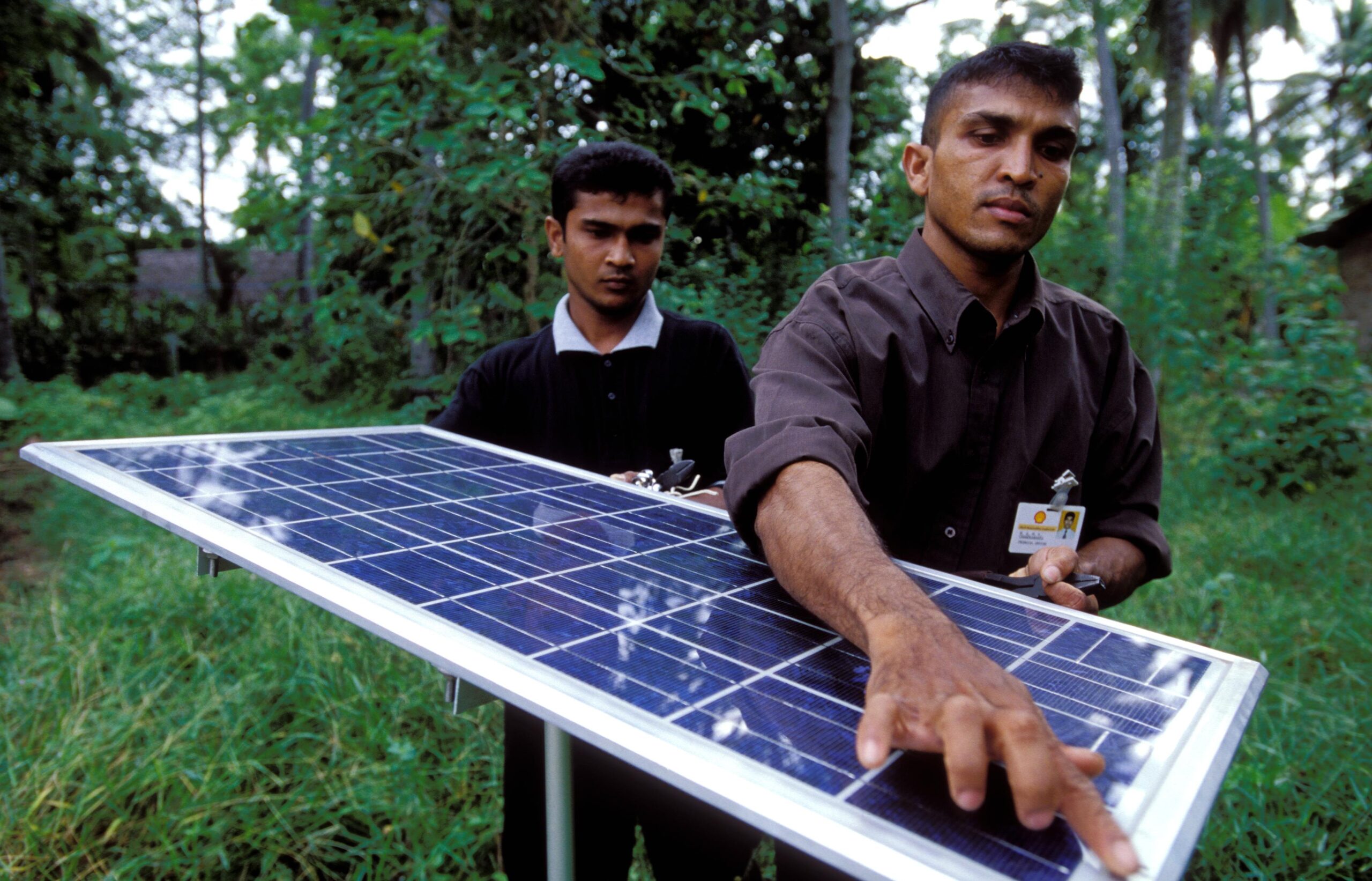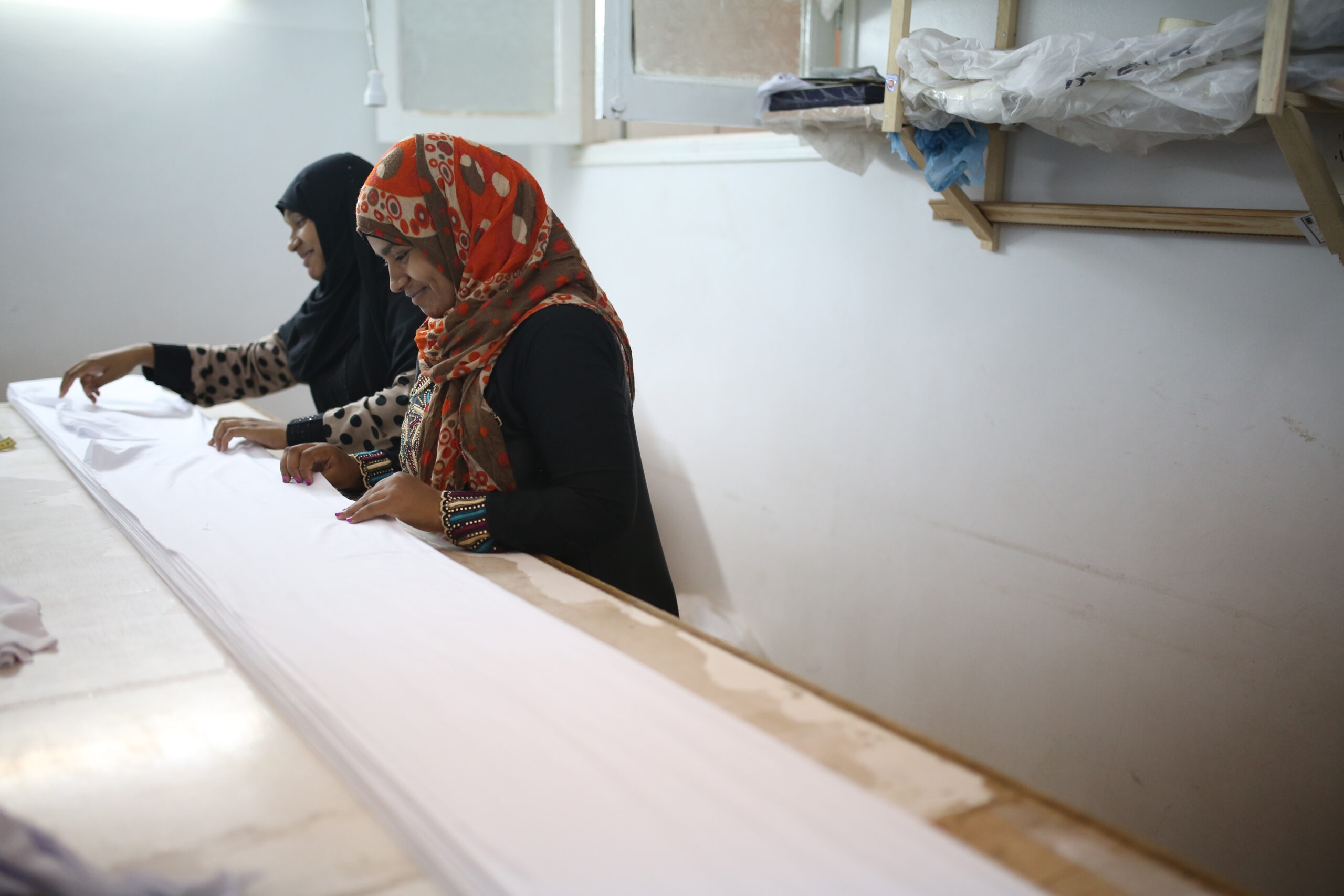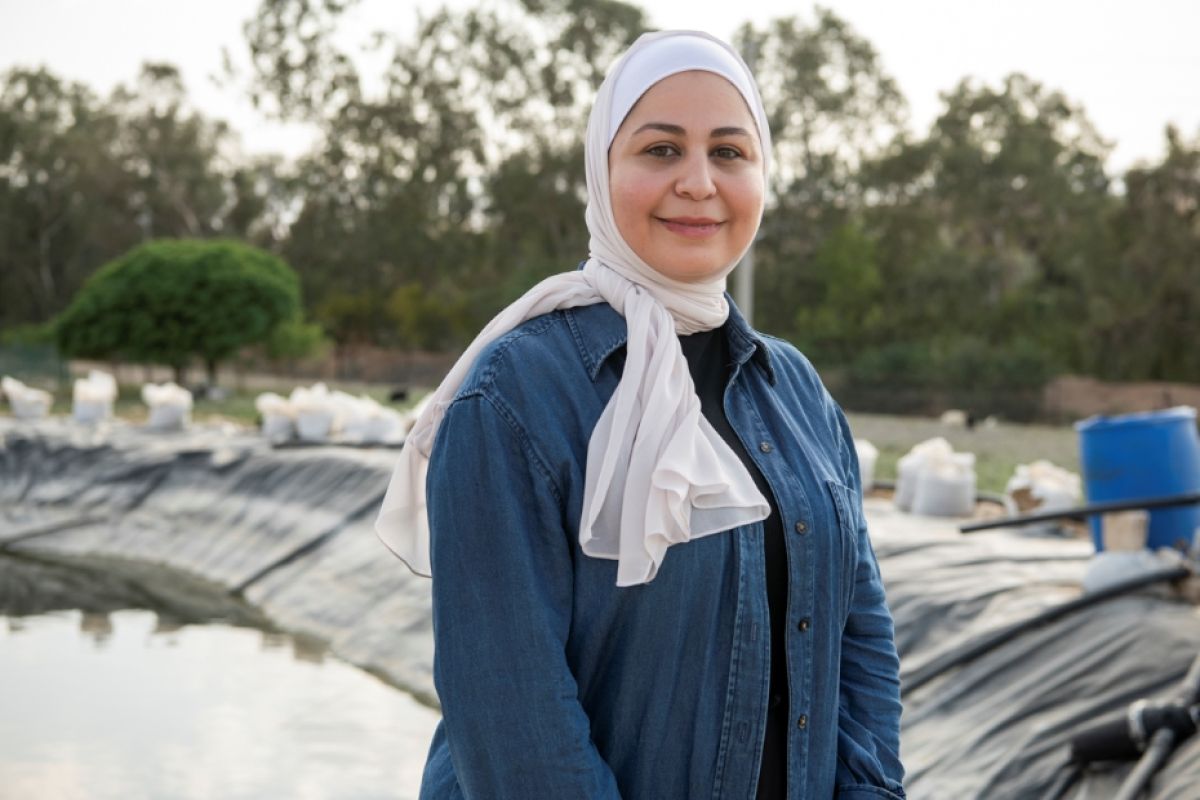'Solar panel on used for lighting village homes' by World Bank Photo Collection via Flickr (CC BY-NC-ND 2.0) https://flic.kr/p/42H6dY

An Overview of Impact Pathways
27 November 2024
Summary
The CEDCA Overview of Impact Pathways (Figure 1) presents a visual summary of key impact pathways from across the 12 projects of the Clean Energy for Development: A Call to Action (CEDCA) initiative, funded by the International Development Research Centre (IDRC). It is the result of an analysis of initial documentation from each of the projects within the initiative to identify areas of coherence across their proposed activities, and desired outcomes and impacts. It does not seek to provide an exhaustive account of every aspect of all the CEDCA projects, but to identify the different types of impact pathways across projects to represent the essence of CEDCA. The primary objective of this overview is to ensure that every project within the CEDCA initiative can identify itself, at least to some extent, within one or more of the impact pathways outlined, demonstrating a shared purpose and complementary processes among projects.
The overview is intended to be a tool, open to adaptation and updates based on input from individual projects, and collective reflections across the cohort. As the projects progress and evolve, their experiences and insights can be incorporated into future iterations of this overview, ensuring that it remains relevant and accurately reflects ongoing work. This adaptability will enable the overview to respond to emerging outcomes and learning of individual projects, acting as a resource for the CEDCA community.
Cite this publication
Spicer, L. and Clark, L. (2024) Clean Energy for Development: A Call to Action. An Overview of Impact Pathways, CEDCA Impact Pathways Report, Brighton: Institute of Development Studies DOI: 10.19088/CEDCA.2024.003
Copylearning
Documents
Women’s leadership and innovative finance: Driving climate resilience and sustainable development
Thursday 20 November 2025
This panel, hosted as part of COP30, will explore how women’s leadership and inclusive financial innovation serve as powerful levers for climate resilience and sustainable development. The session will highlight concrete examples internationally, focusing on the intersection of gender equity, entrepreneurship, and climate action. Panellists: Adel Ben Youssef, Université Côte d’Azur – featured Clean Energy […]
Unlocking the Potential of Small and Medium Businesses and Entrepreneurs in the Clean Energy Transition
3 December 2025
This report highlights outcomes and recommendations from the T20 Side Event ‘Unlocking the Potential of Small and Medium Businesses and Entrepreneurs in the Clean Energy Transition’, held in Johannesburg on 17 October 2025. It presents seven recommendations for concrete steps to turn the G20’s green energy principles into practice, with South Africa’s presidency positioned as […]
Fostering an inclusive energy transition through micro, small and medium-sized enterprises
7 January 2026
Micro, small and medium-sized enterprises (MSMEs) are the main engine of economic growth in the Middle East and North Africa (MENA). The transition to a green economy represents both an environmental necessity and a significant economic opportunity for the region. However, without an intentional focus on gender, this transformation risks reinforcing existing inequalities, rather than […]



